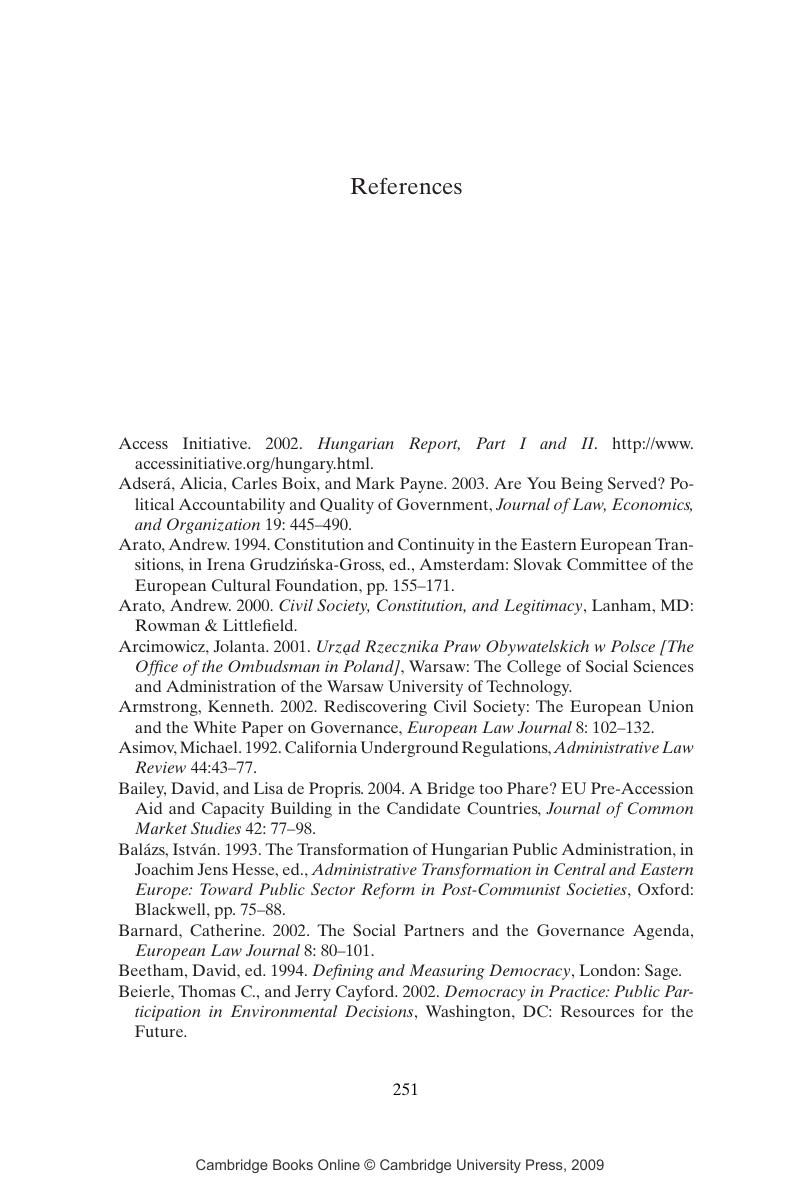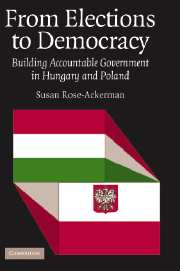Book contents
- Frontmatter
- Contents
- List of Tables
- Preface
- 1 Policy-Making Accountability and Democratic Consolidation
- 2 Alternative Routes to Policy-Making Accountability
- 3 Legacy of the Past
- 4 External Accountability and the European Union
- 5 Oversight
- 6 Decentralized Political Accountability
- 7 Public Participation in Policy Making: Government Procedures
- 8 Civil Society Groups: Overview
- 9 Environmental Advocacy Organizations in Hungary
- 10 Student and Youth Organizations in Poland
- 11 Democratic Consolidation and Policy-Making Accountability
- Appendix 1
- Appendix 2
- References
- Index
- References
References
Published online by Cambridge University Press: 23 July 2009
- Frontmatter
- Contents
- List of Tables
- Preface
- 1 Policy-Making Accountability and Democratic Consolidation
- 2 Alternative Routes to Policy-Making Accountability
- 3 Legacy of the Past
- 4 External Accountability and the European Union
- 5 Oversight
- 6 Decentralized Political Accountability
- 7 Public Participation in Policy Making: Government Procedures
- 8 Civil Society Groups: Overview
- 9 Environmental Advocacy Organizations in Hungary
- 10 Student and Youth Organizations in Poland
- 11 Democratic Consolidation and Policy-Making Accountability
- Appendix 1
- Appendix 2
- References
- Index
- References
Summary

- Type
- Chapter
- Information
- From Elections to DemocracyBuilding Accountable Government in Hungary and Poland, pp. 251 - 268Publisher: Cambridge University PressPrint publication year: 2005



